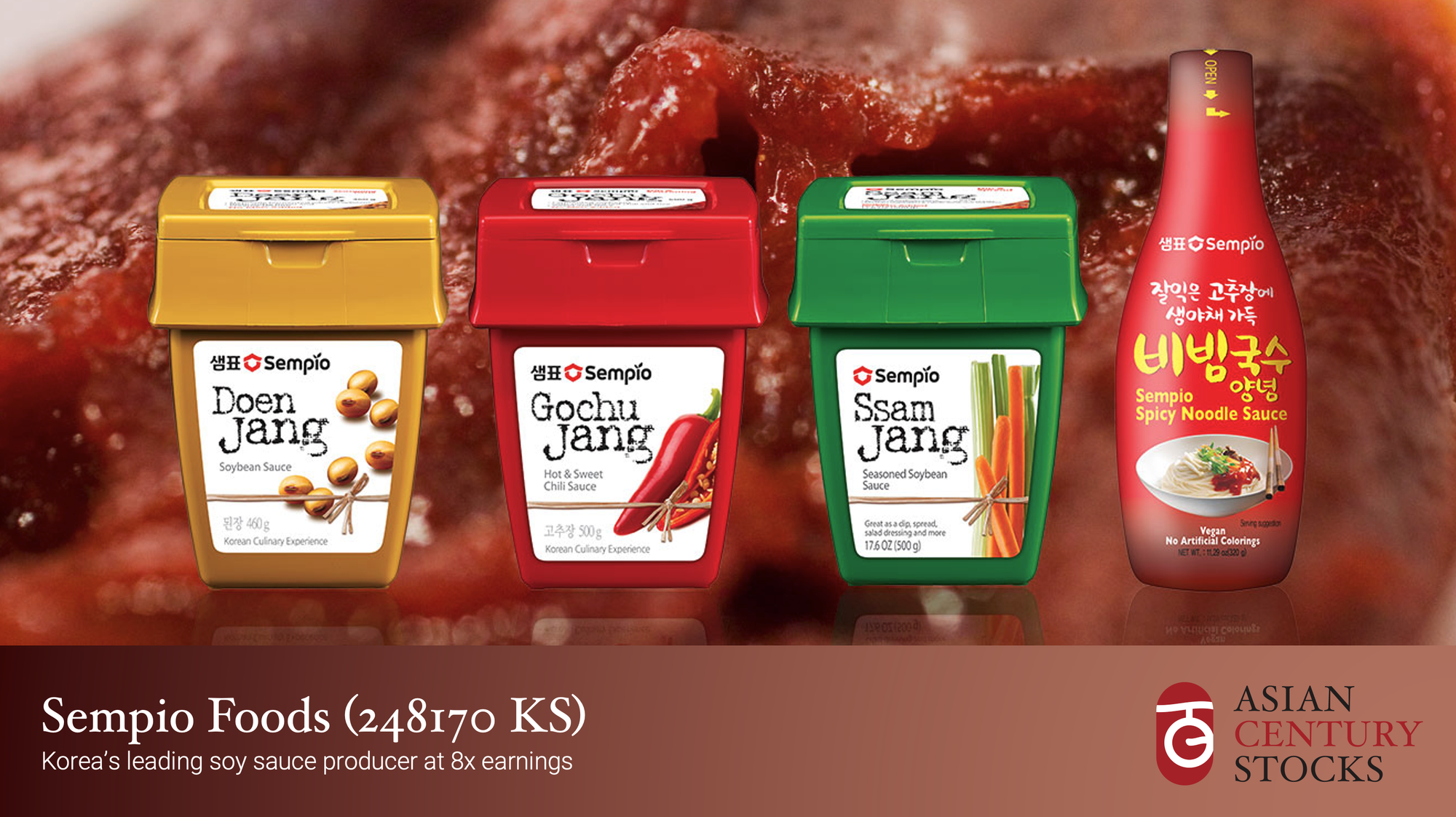Table of Contents
Sempio Foods (248170 KS) is Korea’s leading soy sauce producer.
It has a 60% market share for soy sauce domestically and strength in a variety of related condiments such as bean pastes and chilli sauces.
The company was initially established as the Samsi Soy Sauce Brewery in 1946. Founding father Park Kyu-Hoe and his son were obsessed with product quality. Profitability had been weak throughout most of the company’s history, however, with management prioritising market share gains over profitability.
Since the third-generation leader Park Jin-sun took over in 2016, there has been a shift to greater profitability. Operating margins rose from 5% in 2017 to 13% in 2020.
Soy sauce enjoys pricing power. The price of a bottle of soy sauce is low compared to its impact on the flavour profile of a dish. There is also intense loyalty to particular brands among chefs and consumers. Even if you raise the price by a few $ cents, customers are unlikely to switch brands.
In addition, I believe that Sempio has growth potential within the following products:
- Sempio’s Yondu cooking essence introduced in 2010 has been a great success with excellent customer reviews across the board.
- Sempio’s soy-bean pastes and chilli pastes are on growth trajectories, with volumes rising every year over the past half-decade.
- Management is also expressing optimism about the new Fontana-branded Western-style soups that were introduced in 2020.
The Park family restructured Sempio into a Holdco-Opco structure in 2016. The holding company is the separately listed vehicle Sempio Company (007540 KS).
While I believe this restructuring was driven by an attempt to minimise taxes, it has also introduced unnecessary complexity. It looks like the holding company owns the Sempio brand, for which the operating company pays royalties. In addition, the holding company seems to own tea and canned food businesses.
Another drawback is limited transparency. I first learned about Sempio Foods in a Value Investors Club post here. Like the VIC author, I have been unable to get in contact with management. There is zero sell-side research, and Sempio’s financial reports are all in Korean.
In the near term, the earnings picture will be challenging. With soaring soybean prices and the positive one-off effect from COVID-19 fading, Sempio is likely to experience a tough year in 2021.
The 2022e consensus P/E ratio is only 8x, compared to the international peer group average of 30x.
If you have any questions about the stock, please ask a question in the comment section below.
Please click the picture below to access the full PowerPoint presentation:

Disclaimer: Asian Century Stocks uses information sources believed to be reliable, but their accuracy cannot be guaranteed. The information contained in this publication is not intended to constitute individual investment advice and is not designed to meet your personal financial situation. The opinions expressed in such publications are those of the publisher and are subject to change without notice. You are advised to discuss your investment options with your financial advisers. Consult your financial adviser to understand whether any investment is suitable for your specific needs. I may from time to time have positions in the securities covered in the articles on this website. Full disclosure: I do not hold a position in Sempio Foods at the time of publishing this article. This is disclosure and not a recommendation to buy or sell.
Thanks for reading!
Sign up for over 20 deep-dive reports on Asian stocks per year and full disclosure of my personal portfolio.








